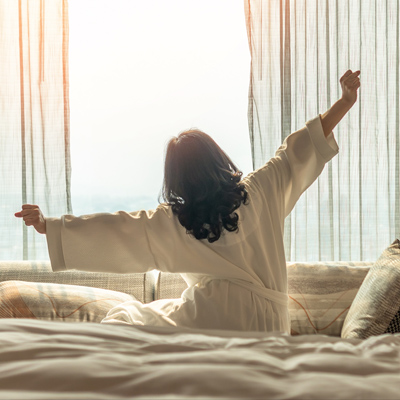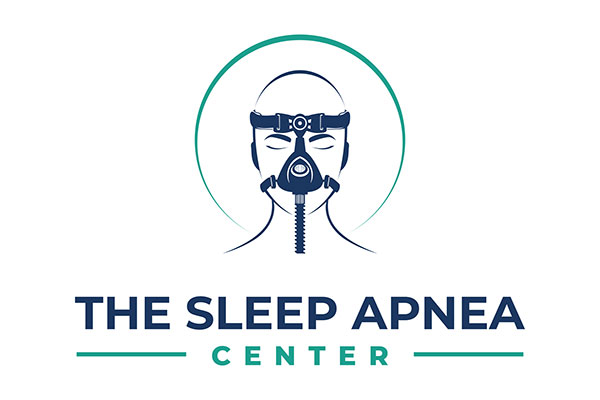Sleep MedicineRockville, MD
Sleep medicine is a specialized area of healthcare that focuses on diagnosing and treating sleep-related disorders like sleep apnea and snoring. At The Sleep Apnea Center, we understand how crucial good sleep is for overall health. A sleep dentist offers non-invasive dental solutions to address the root causes of disrupted sleep, helping patients achieve restful nights and feel their best during the day.
Our dental sleep medicine services are available right here in Rockville. Discover how The Sleep Apnea Center can help improve your sleep. Call 301-279-2600 today to book an appointment with our team.
Understanding Sleep Medicine
Sleep medicine involves identifying and managing conditions that disturb a patient's sleep, such as insomnia, restless legs, and breathing disorders. The most common is sleep apnea. According to 2022 data from the American Medical Association, sleep apnea affects about 30 million people in the United States.
Fortunately, sleep apnea and other sleep disorders are treatable with dental sleep medicine. This treatment focuses on improving airflow and keeping airways open during sleep. Sleep dentists can provide custom oral appliances that reposition the jaw or tongue to prevent airway collapse, offering patients a safe and comfortable alternative to continuous positive airway pressure (CPAP) machines.
"Sleep medicine involves identifying and managing conditions that disturb a patient's sleep, such as insomnia, restless legs, and breathing disorders."
What Is a Sleep Dentist?
A sleep dentist specializes in treating sleep-related breathing issues, like obstructive sleep apnea (OSA), using custom dental appliances. Sleep dentists undergo additional training beyond general dentistry to understand the connection between oral structures — like the tongue, soft palate, and jaw — and sleep-related problems. This training allows them to create effective, non-invasive solutions for patients who struggle with sleep apnea or chronic snoring.
For many patients, oral appliance therapy provides a more manageable solution than CPAP machines. These devices, often referred to as mandibular advancement devices (MADs), work by keeping the jaw in a forward position to ensure the airway stays open throughout the night. This approach to treating OSA has produced positive results for at least a decade. A 2014 study published in the Journal of Clinical Sleep Medicine found that oral appliances can reduce symptoms by as much as 50% in patients with mild to moderate OSA.
"Sleep dentists undergo additional training beyond general dentistry to understand the connection between oral structures — like the tongue, soft palate, and jaw — and sleep-related problems."
When To Consider Sleep Medicine
Many patients turn to sleep medicine for help when issues like snoring or sleep apnea disrupt their sleep. Poor sleep can seriously affect physical and mental health. Besides daytime sleepiness, sleep deprivation has long been connected with cognitive issues and, per the Mayo Clinic, an increased risk of developing conditions like heart disease and diabetes.
When patients come in for treatment, it is often because they notice signs of disruptions in their sleep. Chronic snoring, for instance, can be a major issue for both the patient and their partner or roommate. Sleep apnea, in particular, can cause dangerous pauses in breathing, frequently waking up the patient throughout the night. This can lead to oxygen deprivation and prevent the body from getting restorative and restful sleep.
Patients may also seek help after dealing with symptoms like morning headaches, dry mouth, or sore throat. These symptoms typically occur upon waking in the morning. Fortunately, a sleep dentist can address these issues and more through sleep medicine.
"When patients come in for treatment, it is often because they notice signs of disruptions in their sleep."
Treatments Used in Sleep Medicine
Sleep medicine involves a variety of treatments aimed at improving airflow and ensuring patients get a good night's rest. Oral appliance therapy is one of the most effective sleep medicine solutions provided by sleep dentists, especially for patients who struggle with obstructive sleep apnea. These oral appliances resemble mouthguards but work by repositioning the jaw or tongue to keep the airway open.
Other solutions, such as snoring treatments, may assist patients who experience disruptive snoring but do not have sleep apnea. Sleep dentists may also recommend a home sleep test in collaboration with sleep physicians to diagnose sleep apnea in the comfort of the patient’s home.
"Oral appliance therapy is one of the most effective sleep medicine solutions provided by sleep dentists, especially for patients who struggle with obstructive sleep apnea."
Benefits of Seeing a Sleep Dentist
Choosing to see a sleep dentist for sleep medicine treatment can significantly improve quality of life. Oral appliances not only provide relief from snoring and sleep apnea, but they also offer a convenient, non-invasive solution. Patients often find oral appliances far more comfortable than CPAP machines, motivating them to stick with the treatment.
A major benefit of oral appliance therapy is that it can improve sleep quality quickly. Many patients report waking up feeling more refreshed and alert, with better daytime energy levels. In the long term, treating sleep apnea also reduces health risks associated with sleep deprivation — heart disease, diabetes, and memory issues, among others.
"Many patients report waking up feeling more refreshed and alert, with better daytime energy levels."
Questions Answered on This Page
Q. What is sleep medicine from a dentist?
Q. What is a sleep dentist’s role in sleep medicine?
Q. Why consider sleep medicine?
Improve Your Sleep Today
If you have been experiencing symptoms of sleep apnea or other sleep disorders, it may be time to seek help from a Rockville sleep dentist. Contact The Sleep Apnea Center at 301-279-2600 to schedule your consultation today. We have various sleep medicine solutions to help you start sleeping better tomorrow.
Frequently Asked Questions
Q. What is sleep medicine?
A. Sleep medicine is a specialized healthcare field dedicated to diagnosing and treating sleep-related conditions. Examples include sleep apnea, chronic snoring, and breathing disorders that impact sleep quality. Treatment options within sleep medicine aim to improve overall health by restoring restful sleep, which is essential for mental and physical well-being.
Q. What does a sleep dentist do?
A. A sleep dentist is a professional trained in managing sleep-related breathing disorders, including obstructive sleep apnea and chronic snoring, using custom-fitted, non-invasive treatments. Specializing in oral appliance therapy, a sleep dentist creates appliances designed to reposition the jaw, preventing airway collapse during sleep. Many patients find oral appliances to be a preferable alternative to CPAP machines due to their comfort and portability.
Q. Can a sleep dentist treat sleep apnea?
A. Yes, sleep dentists can effectively treat sleep apnea through custom oral appliances that help keep the airway open during sleep. These appliances, often used as an alternative to CPAP therapy, are custom-fitted to align with the patient's unique anatomy. Oral appliance therapy is especially beneficial for patients with mild to moderate OSA.
Q. What are the benefits of oral appliance therapy?
A. Oral appliance therapy offers numerous benefits for patients with sleep apnea or chronic snoring. As a comfortable and non-invasive treatment, these custom-fitted devices are convenient and travel-friendly. They significantly improve sleep quality, increasing daytime energy and alertness.
Q. What are the risks of untreated sleep apnea?
A. Sleep apnea disrupts oxygen levels during sleep, which strains the cardiovascular system and can impact metabolic health. It also prevents the patient from having a good night's sleep, which can negatively impact cognitive function and mental health. Sleep medicine can mitigate these risks and improve quality of life.
Definition of Sleep Apnea Terminology
- Sleep medicine.
- A medical field focused on diagnosing, treating, and managing sleep disorders to improve sleep quality and overall health.
- Home sleep test.
- A diagnostic test that monitors breathing and oxygen levels during sleep in the comfort of the patient’s home.
- Restless sleep.
- Difficulty maintaining uninterrupted sleep, often caused by conditions like sleep apnea.
- Excessive daytime sleepiness.
- Persistent fatigue and drowsiness during the day due to disrupted sleep patterns.
- Non-invasive.
- A treatment that does not require surgery or other invasive procedures.
Contact Us
The Sleep Apnea Center is located at
350 Fortune Terrace #101B
Rockville,
MD 20854

